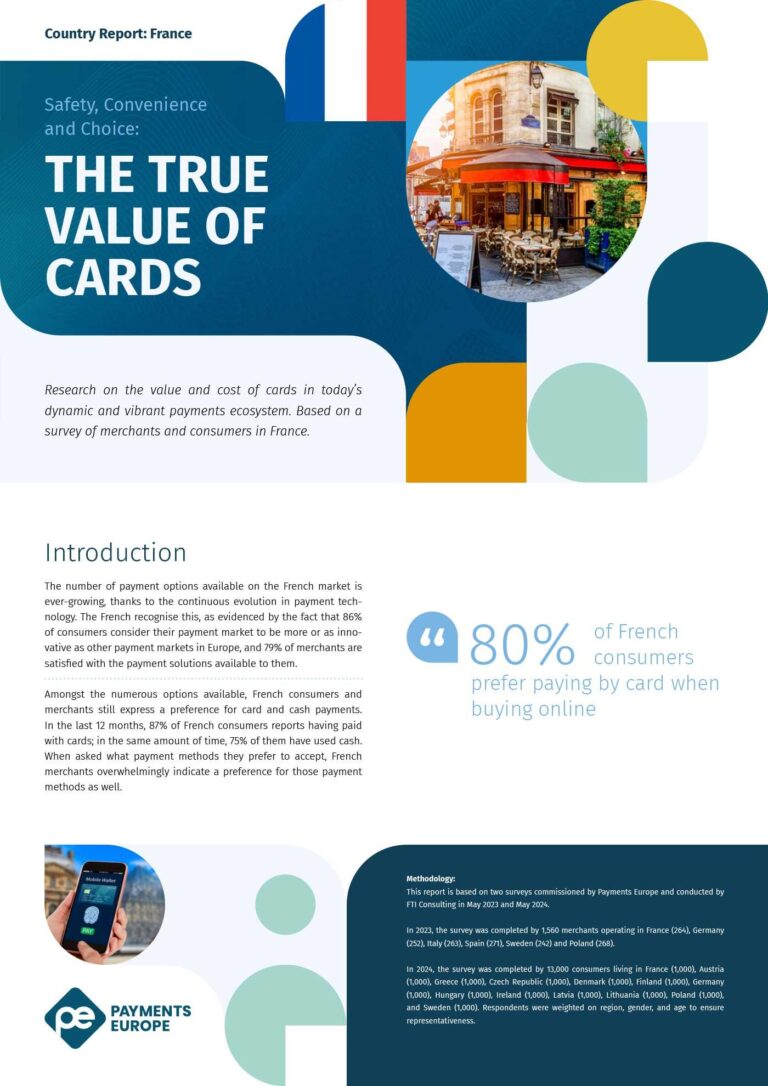As digital transactions become increasingly prevalent across the globe, France is witnessing a significant surge in card payments, prompting renewed discussions about the future of cash in the country. Amid concerns over crime linked to cash usage, authorities are considering whether a move away from physical currency could enhance security and curb illicit activities. This shift raises important questions about the balance between technological adoption and societal impacts as France navigates the evolving landscape of monetary transactions.
The Surge of Card Payments in France and Its Impact on Cash Usage
France is witnessing a remarkable shift in consumer behavior as card payments steadily overtake traditional cash transactions. Recent data highlights that over 70% of in-store payments are now made by card, reflecting a growing preference for quick, contactless transactions especially among younger generations. The government and financial institutions see this move as more than just convenience—it’s an opportunity to tackle underground economies and petty crimes frequently linked to untraceable cash exchanges.
Experts argue that reducing cash reliance could lead to:
- Enhanced security: Fewer cash dealings limit robbery incentives and money laundering.
- Better tax collection: Digital transactions create transparent trails, helping curb tax evasion.
- Economic modernization: The shift supports fintech innovation and streamlines retail operations.
| Year | Card Transactions (%) | Cash Transactions (%) |
|---|---|---|
| 2018 | 54 | 46 |
| 2021 | 67 | 33 |
| 2023 | 72 | 28 |
How Reducing Cash Transactions Could Help Combat Financial Crime
Reducing reliance on cash transactions offers a promising avenue for curbing financial crime in France. Digital payment methods, especially card payments, create a transparent trail that law enforcement agencies can follow to detect money laundering, tax evasion, and illicit trade. In contrast, cash transactions are inherently anonymous, enabling criminals to operate with relative impunity. By promoting electronic payments, authorities aim to increase accountability and reduce opportunities for hidden financial flows.
Key benefits of minimizing cash usage include:
- Enhanced traceability: Digital records make suspicious financial activities easier to identify and investigate.
- Reduced corruption: Transparent transactions discourage bribery and under-the-table dealings.
- Improved tax compliance: Electronic payments facilitate accurate revenue reporting and collection.
| Crime Type | Cash Role | Potential Impact of Card Payments |
|---|---|---|
| Money Laundering | High | Significant reduction in anonymous transfers |
| Tax Evasion | Common | Increased detection via traceable transactions |
| Illegal Trade | Frequent | Less cash flow limits illicit commerce |
Challenges and Concerns Surrounding a Cashless Economy in France
Transitioning towards a cashless society in France, while promising in its fight against crime, is fraught with significant challenges. Chief among them is the risk of excluding vulnerable populations who rely heavily on cash due to limited access to banking services or digital literacy issues. Seniors, low-income groups, and migrants could find themselves marginalized as physical money fades from everyday life. Furthermore, concerns around cybersecurity and data privacy grow as digital transactions become the norm, potentially exposing users to identity theft and financial fraud.
Authorities and stakeholders must also grapple with the socio-economic impact of eliminating cash. Small businesses, especially those in rural areas, often depend on cash for its immediacy and lack of transaction fees, making the switch potentially detrimental to their survival. Below is a table summarizing key concerns associated with a cashless shift in France:
| Concern | Impact |
|---|---|
| Digital Divide | Exclusion of non-tech-savvy individuals |
| Data Privacy | Increased risk of surveillance and breaches |
| Economic Impact | Challenges for small and rural businesses |
| Dependence on Technology | Payment system outages could disrupt trade |
Policy Recommendations for Balancing Security and Accessibility in Payment Systems
To effectively harmonize the goals of enhancing payment security while preserving universal accessibility, French authorities and financial institutions should implement a multifaceted strategy. This includes strengthening digital identification frameworks to verify users without creating barriers for vulnerable populations. Incorporating biometric verification or advanced cryptographic methods can reduce fraud while maintaining smooth transaction flows. Meanwhile, preserving a baseline level of cash availability ensures that those less comfortable with digital payments—such as the elderly or low-income individuals—are not excluded from the financial ecosystem.
- Expand public education campaigns to build trust in digital systems.
- Subsidize contactless payment infrastructure in rural and underserved areas.
- Mandate transparent reporting on data privacy and fraud prevention efforts.
- Introduce tiered transaction limits to accommodate diverse user needs.
Furthermore, policymakers should encourage collaboration between banks, technology providers, and law enforcement to create agile frameworks that can adapt to emerging threats. Integrating real-time analytics and machine learning algorithms in transaction monitoring could significantly deter money laundering and illegal activities. However, this technological advancement must be carefully balanced with robust privacy safeguards to avoid alienating citizens wary of surveillance. The table below exemplifies a potential model for categorizing payment methods by security level and accessibility:
| Payment Method | Security | Accessibility |
|---|---|---|
| Cash | Low risk of digital fraud but vulnerable to theft | High (universal acceptance) |
| Contactless Card | Moderate security with encryption | High (widely available) |
| Mobile Payments | High with multi-factor authentication | Moderate (depends on smartphone usage) |
To Conclude
As card payments continue to gain traction across France, the debate over moving towards a cashless society is intensifying. While the potential to curb crime and enhance transaction transparency is compelling, questions remain about accessibility and privacy. As the nation weighs the benefits and drawbacks, the future of cash in France hangs in the balance, reflecting a broader global conversation about the evolving nature of money in an increasingly digital world.




